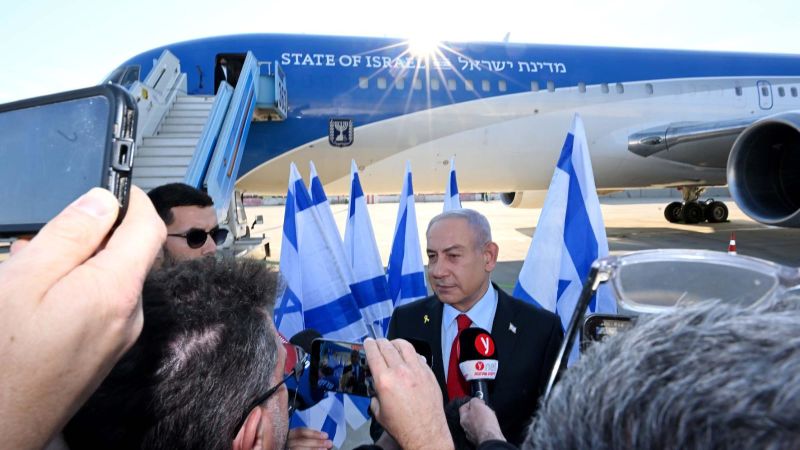Netanyahu in Washington as Gaza Ceasefire Deadline Arrives

Israeli Prime Minister Netanyahu met with US President Trump as talks for extending Gaza's ceasefire were delayed, raising concerns about violation of terms and humanitarian implications.
Israeli Prime Minister Benjamin Netanyahu departed for Washington on Sunday to meet with US President Donald Trump amid uncertainty surrounding the ongoing Gaza ceasefire negotiations.
A deadline for starting talks to extend the ceasefire appeared on Monday while Netanyahu remained in Washington, with no announcements from his office regarding a negotiating team for discussions with Hamas. The current ceasefire, which has been in effect for just over two weeks, is set to end on March 1.
Under the agreement, negotiations for the next phase were scheduled to commence no later than Monday. However, the Israeli government has not revealed a negotiating team to engage in talks in Qatar or Egypt, where Hamas representatives are meeting this week.
Qatar's prime minister noted on Sunday that there were "no clear details" regarding the start of the negotiations, expressing hope for progress in the coming days.
Netanyahu believes that any further negotiations should primarily occur in Washington rather than in Doha or Cairo. His office remarked that he had coordinated with Trump's Middle East envoy about beginning negotiations on the next phase of the hostage deal following their meeting.
Since the ceasefire began on January 19, Hamas released 18 hostages while Israel freed 583 Palestinians from detention, including children held without charges. The ceasefire has allowed aid to flow into Gaza, leading to the opening of the Rafah crossing for medical evacuations, despite a few breaches of the truce.
However, the timeline for the second phase of the truce is crucial. Analysts assert that Netanyahu is violating the agreement by prioritizing talks with Trump instead of engaging with Hamas. The Israeli military is expected to withdraw fully from Gaza, with conditions for the release of more Palestinian prisoners.
Netanyahu's primary concern will be Trump's intentions, especially given the American president's previous involvement in fostering a ceasefire deal. Netanyahu remains optimistic about further negotiations leading to improved conditions.
Despite this, criticism arose from peace activists who contend that Netanyahu's delay in negotiations undermines the agreement and places hostages at risk.
While Trump previously expressed a desire to end international conflicts, his suggestions for forcibly relocating Gaza's population raise serious legal concerns regarding human rights violations. Some members of Netanyahu's coalition have reacted strongly, calling for the renewal of military action in Gaza.
The political landscape remains tense as Netanyahu navigates the intricacies of international diplomacy and domestic pressures.

















